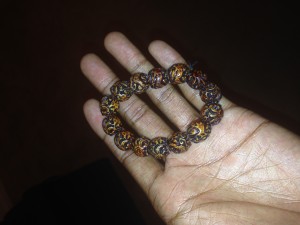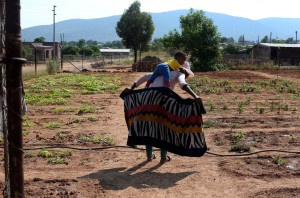During the 15th and 16th century, Europeans began to think things out differently. Compared to other countries, they decided they wanted to hold absolute power of the world. Europeans began to explore and seek ways to make their want possible. As time went by, in the 19th century the Europeans began to establish their presence in Africa . Trade routes in Africa made it possible for this to occur. Most Africans countries fought to try and resist control of their countries and societies by the Europeans imperialists, but unfortunately they failed to comply. A contributing factor was technologies of warfare used between the forces of both countries. African forces fought with more hand made weapons such as bows, arrows, spears, swords, axes, and some deadly arms including old rifles, and artillery guns. As opposed to Europeans forces who fought with machine guns, rifles, and artillery guns. The. Unfortunately, by the early 1900’s, Africa (excluding Ethiopia and Liberia), was colonized by European countries France, Britain, Germany Belgium, Spain, Portugal, and Italy.

-Here’s a map of the Europeans control of Africa, also known as the “Scramble for Africa”.
On the other hand, European also took control of the Americas. It all started around 100 a.d when the Vikings sailed from the British Isles to Greenland to establish their own colony. In 1492, a guy by the name of Christopher Columbus sailed to a country, in which he claimed to be his own discovery. The country was said to be “The Americas”. Since the Europeans landed there, they began to colonize the, area, expanding their living, calling the newfound country one of their own. Europeans families born there became the first citizens of the Americas. Small cities began being built and new towns were created. Americas was then known as the country Europeans took over.

-“When Christopher Columbus discovered the Americas”
As you can see, both the United States and Africa were colonies of the Europeans. This brings me to thought of imperialism. With Europeans use of military forces, they were able to colonize, extending their country’s power, in order to try and have total control of the world. How do I feel about this? No country should be able to have complete control over another. Especially not because they are more advanced then others.
In my opinion, back in the earliest century, countries had different mindsets as compared to now. For example, Africa was known to have all the goods such as gold, good soil, spices, herbs, land, and much more. Because of this, I felt that’s why the Europeans decided they wanted to come and take over something that was not theirs. Europeans knew colonizing Africa would increase their trade and economy. I believe Africans were nice and giving, and when they were approached by the Europeans, they thought to help them out, rather then to see them do bad. But instead Europeans had other intentions, which lead them to do otherwise. It’s not fair that they abused Africans niceness, taking total control of them. In today’s society, countries hold power through their government. Everything is done equally, and citizens of the country choose leaders through votes. I also believe the lack of education could have possibly played a role in imperialism as well. I say this because if the Africans had the knowledge to read the Europeans minds, they would have known what they were up too. Although Europeans had technological advancements when it came to weapons, education could have helped the Africans use their mind to the full ability. They could have also discovered new ways to prevent another country from having total control of them. This goes for the Americas as well. Since the Europeans figured they were the first to discover the land, they took matter into their own hands. Only because they knew they had what it took to hold absolute power over another country.
Slavery played a big part in the earliest centuries as well, especially Africa. Million of slaves would be exported to different countries for goods. Goods such as gold, ivory, textiles, and much more. Slavery is a forced labor where individuals are forced to work under conditions by leaders who hold absolute power. Did I like the existence of slavery back in the past? No, and I wished I could have done something about it. I feel as if no person should be forced to work under the pressure of someone else. Especially, they should not be beaten, abused, and punished for not doing their work properly, or not doing enough work. I believe everyone is entitled to fair treatment when something is needed from him or her. Individuals known as slaves, had families to provide for. How could they provide if they are being used for their services and not being paid for? And if they were being paid, it was little to no money, barely making ends meet for their families. This brings me to what’s going on in today’s world. I wouldn’t say slavery doesn’t exist at all because I’m not quite sure. But what I would say is moderate slavery still exists, instead I call it a “job” or “career”. Most of us work, and we work just to provide for families, our own needs, and life in general. Some get paid hourly and some get paid salary. However, I feel as if some people still don’t get paid the amount of the money they deserved based off the work they put forward. Although some jobs use technologies, it’s still a hand on job where individuals take their time out to do. I feel as if the only way a worker gets the paid the right amount of money they deserve is when they are the owner or manger of the company, someone who is in charge. This related back to the Europeans having control over the Americas and Africans. Why because it’s still a person holding power over an individual, in which the individual has to respect. For example, in today’s society, we can’t tell our boss, manager, or supervisor, no when we don’t want to do something. Although now we are entitled to rights as a worker, it’s still things we can and cannot do.












